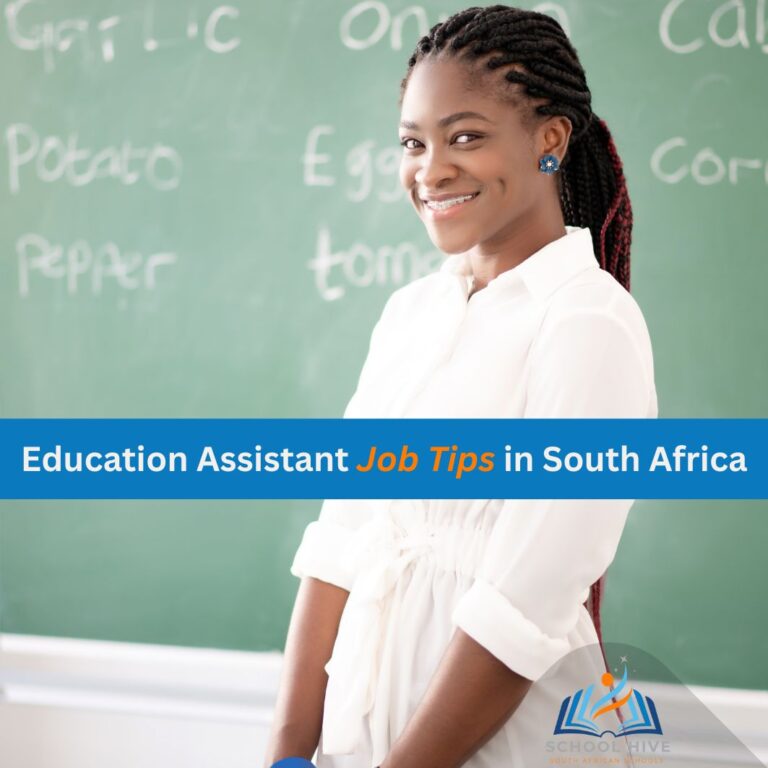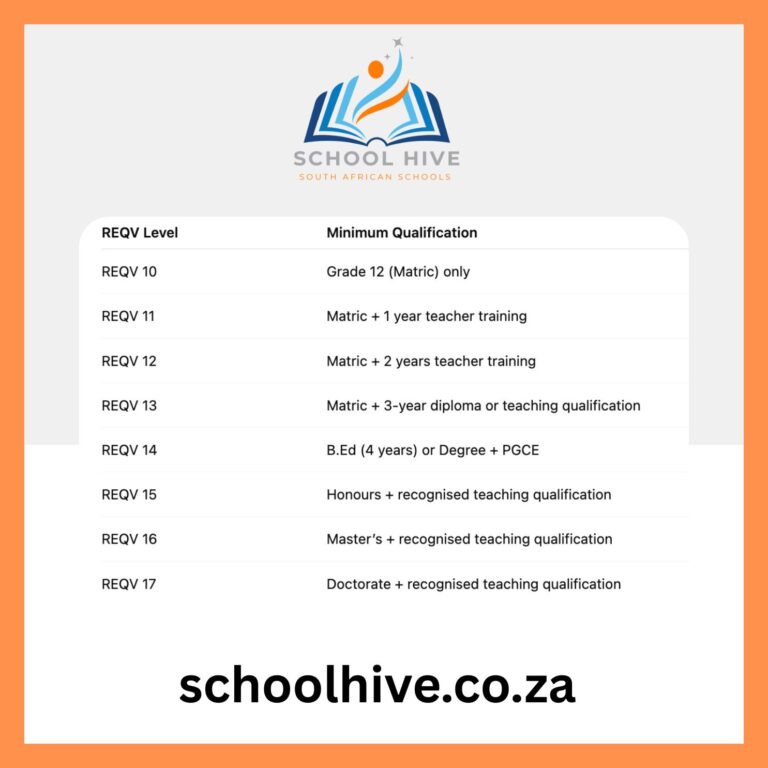When it comes to the roles of teachers in the South African education landscape, there are guiding principles which are informed by the National Policy from the Department of Education. It is often disheartening to acknowledge that, while these roles and responsibilities are “the rule book” for teachers, more often than not, they are just simply not followed. This is obviously due to the hash realities and conditions that some schools experience in South Africa.
---Advert---
7 Roles and Responsibilities of a Teacher in South Africa
Lets go through each role and find out what it entails, in theory and in reality.
1. Learning Mediator
Theory: As a learning mediator, a teacher is expected to bridge the gap between the content and the students. This role involves making the material accessible, engaging, and relevant to the learners, guiding them to understand and apply the knowledge.
Reality: In theory, this sounds perfect, but in practice, especially in South Africa, the reality is often more complicated. Many classrooms are overcrowded, with more than 40 students per class, making it nearly impossible for teachers to give individual attention. Resources like textbooks or digital tools might be limited or non-existent. So, while teachers aim to mediate learning, often, it’s more about just getting through the day, ensuring everyone gets the basics.
2. Interpreter and Designer of Learning Programs and Materials
Theory: Teachers should be able to interpret the curriculum and design appropriate learning programs and materials that meet the needs of all students, while considering their different learning styles and levels.
Reality: The reality here is ver mixed. In well-resourced schools, teachers have the time, support, and materials to design engaging programs. But in under-resourced schools (more often in rural areas), which are common in South Africa, teachers might be working with outdated or insufficient materials. The workload is heavy, and often, teachers have to improvise, making do with what they have. It’s not about designing; it’s about survival.
3. Leader, Administrator, and Manager
Theory: This role expects teachers to manage classrooms effectively, lead learning activities, and handle administrative tasks like attendance, reports, and communication with parents.
Reality: In reality, teachers often juggle these roles under immense pressure. We spend hours on administrative tasks, often outside of school hours, which takes away from lesson preparation and personal time. In schools with fewer resources, teachers might also be managing several roles simultaneously, like being the tech support or even the nurse when needed. It’s exhausting, and the balance is tricky.
4. Scholar, Researcher, and Lifelong Student
Theory: Teachers should continuously engage in professional development, stay updated with the latest educational research, and apply new knowledge to improve their teaching practices.
Reality: The concept is sound, but the reality is that many teachers don’t have the time or resources for ongoing professional development. Professional development opportunities are often scarce or inaccessible, especially in rural areas. Many teachers want to grow and learn, but the support systems are just not in place.
5. Community, Citizenship, and Pastoral Role
Theory: Teachers are expected to take on a pastoral role, guiding students in becoming responsible citizens and contributing positively to their communities. This role also involves offering emotional support and dealing with social issues that affect students.
Reality: This role is crucial in South Africa, where many students face challenging home environments. Teachers often become counselors, social workers, and even surrogate parents. But without proper training and support, this can be overwhelming. The emotional toll on teachers is significant, and without the right support, it can lead to burnout.
6. Assessor
Theory: Teachers should regularly assess students’ progress, provide feedback, and adjust teaching strategies accordingly to ensure all learners achieve their potential.
Reality: In practice, this role can be reduced to just grading assignments and tests, often under strict time constraints. With large class sizes, meaningful assessment and feedback are difficult. Teachers end up focusing on summative assessments (like exams) rather than formative ones that could help students learn better. It’s more about meeting deadlines than truly assessing understanding.
7. Learning Area/Subject/Discipline/Phase Specialist
Theory: Teachers should be experts in the subjects they teach, continuously developing their knowledge and staying current with advancements in their field.
Reality: While many teachers are passionate about their subjects, the reality is that they are often required to teach outside their specializations due to staff shortages. This dilutes the quality of education. Professional development in specific subject areas is also limited, making it hard for teachers to stay current.
Additional Roles Teachers Play
- Curriculum Designer: You’re expected to tailor the curriculum to fit the needs of your students, but without the proper resources, this often feels like an impossible task.
- Parent Engagement and Communications Manager: Communication with parents is vital, but it’s often neglected because of time constraints or a lack of engagement from the parents themselves.
- Sports Coach: Many teachers take on the role of coaching sports, which is rewarding but adds another layer of responsibility.
- Counselor: Often, you’re the first line of support for students dealing with personal issues. This role is essential but emotionally draining.
- Administrator: The paperwork never ends, and it often feels like you’re drowning in it. From grading to reports to meetings, it’s a lot to handle.
- Tech Support: Especially with the push towards digital learning, you might find yourself troubleshooting tech problems more than actually teaching.
- Social Worker: In many communities, you’re the one who notices if a child is struggling at home, and you have to take action, even when it’s outside your formal job description.
- Outings and Field Trip Coordinator: Organizing these events is fun but requires time and energy that you might not have to spare.
- Facilities Manager: Sometimes, you’re also in charge of the physical environment, ensuring the classroom is a safe and conducive space for learning.
In theory, these roles are about creating a holistic, well-rounded educational experience for students. But the reality in South African schools is that teachers are stretched thin, often doing the best they can with limited resources. The expectations are high, but the support is often low, making it a challenging environment for both teachers and students.
---Advert---






